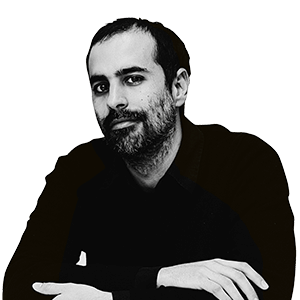Angelina Jolie: "I love America, but I don't recognize it right now."
The actress presented Alice Winocour's drama 'Couture' at the San Sebastian Film Festival.


Special Envoy to San SebastiánThe fact that actors and actresses are public figures whose joys and sorrows we know—or think we know—in detail makes it sometimes difficult to separate the role they play from their personal lives. This is true of Angelina Jolie and the film she presented this Sunday at the San Sebastián Film Festival, the drama set in the world of fashion, Couture, in which the actress plays a film director who, during the filming of a fashion film In Paris, she is diagnosed with cancer that will force her to make drastic decisions about her body and her life, as Jolie herself had to do when she underwent a double mastectomy to prevent the high probability of developing breast and ovarian cancer, a disease that already caused the death of her mother at the age of 56. Angelina Jolie is already 50, and in Couture not only showcases her great mature beauty, but it is one of her most solid roles in recent years.
It must be said that Jolie is not the only protagonist of Couture, an ensemble film in which French director Alice Winocour portrays the inner workings of the fashion industry through the stories of several workers in this world, from the seamstress who must sew the main costume for a fashion show to the makeup artist with a vocation for writing or the inexperienced model from Kenya who arrives in Paris for Paris. The character with the greatest dramatic consistency is, of course, Maxine, played by Jolie, a filmmaker who, in the midst of a divorce from her husband, balances motherhood and work until cancer changes her priorities. Evidently, when the film shows Maxine's shock upon hearing the word cancer or the difficulty in digesting the treatments proposed by her oncologist, it's inevitable to think of the biographical background that runs through the images.
The American actress, who has only spent a few hours in San Sebastián and isn't even spending the night in the city – the following day she has filming in England –, has recalled the decision she made about her health and which connects her to the character she plays. "I had a double mastectomy and had my ovaries removed because my mother and grandmother died very young. I'm not saying that everyone should do the same, but it's important to have the option, and I don't regret having done it," explains the actress. For Jolie, cancer affects "women in a particular way" and makes them feel "vulnerable and alone," and she confessed that reading the script she didn't expect the man she has an affair with after learning of the diagnosis (Louis Garrel) "to react the way he does, and that desire would be an important part of the film." "It's important to feel desired in order to remain a woman, and if you love someone who's going through that, you should keep that in mind," she concluded.
Garrel, who plays a director of photography and shares intimate scenes with Jolie, celebrated the fact that a film about cancer "also talks about sex." "Normally, when films touch on this subject, they always do so with pathos, but this isn't the case," the actor celebrated, adding to the smiles of the rest of the cast and crew. Couture that "men are also very easy to eroticize, they are excited by very strange things." This is not the first time that Jolie shows her body in the cinema after the mastectomy - she already did it in 2015 in Oceanfront, which she directed herself–, but doing so from the perspective of Maxine's fragility adds a touch of courage and truth to the images.
During her brief visit to San Sebastián, Jolie also spoke about the turbulent times the United States is experiencing, but without going into details or mentioning Donald Trump: "I love my country, but right now I don't recognize it. And anything that divides people or limits personal freedom is dangerous. These are dangerous times, full of dangers. I couldn't even hold a press conference." She seemed more comfortable, and even emotional, remembering her mother. "It's very difficult for me to talk about her without crying. I always have her necklace [which she also wears in the film] and her ashes close by. I think about her a lot," Jolie confesses.
From cruising to a nursing home
The official competition has also welcomed the return to the festival of the Moriarti, the collective of Basque filmmakers behind titles such as Frame, The Endless Trench either Handia. In Maspalomas, a homosexual man in his seventies who is used to living according to his desires in the Canary Islands town of Maspalomas – a popular destination for gay tourism with sand dunes ideal for cruising– He is forced, due to a stroke, to return to San Sebastián and live in a nursing home, a conservative environment in which he is forced to return to the closet, where he had lived the first half of his life. The film, directed by Jose Mari Goenaga and Aitor Arregi, has value as a sociological portrait of the evolution of people in the LGBTI community who were unable to freely enjoy their sexuality during a youth that coincided with the grayest years of Franco's regime, but it tends towards sentiment in the pathos when it addresses the romantic resumption of relations with the daughter he abandoned many years ago to embrace his sexual identity.
